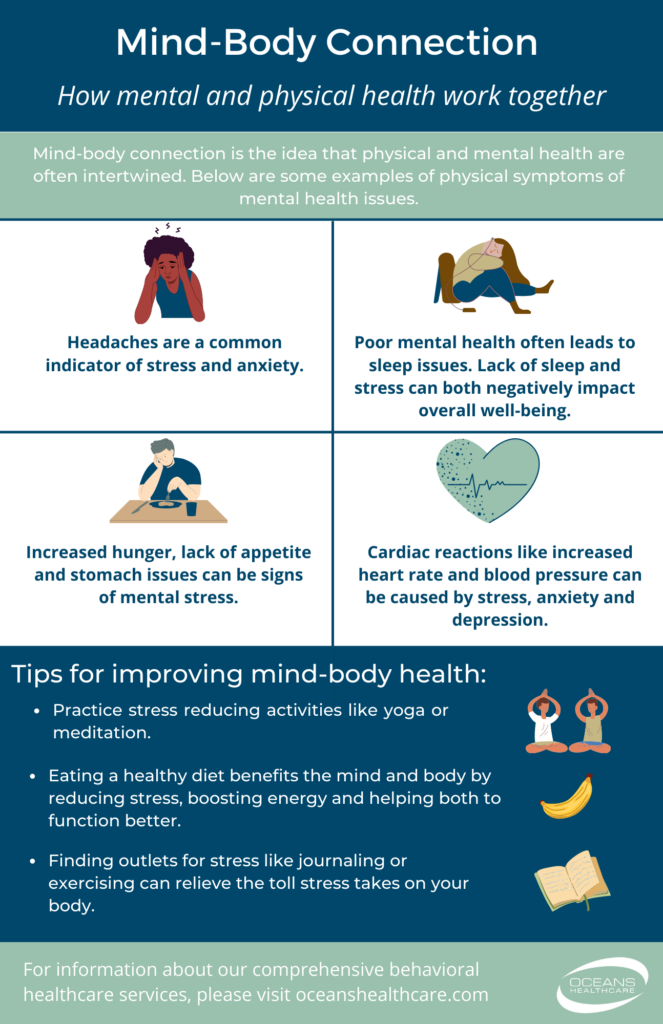In today’s fast-paced and technology-driven world, it’s more important than ever to prioritize our mental and physical health. While many of us may focus on one aspect over the other, the truth is that our mental and physical well-being are closely interconnected. In this article, we’ll delve into the link between mental and physical health, and explore why it’s crucial to pay attention to both.
Understanding the Connection
Our bodies and minds are not separate entities; they are intricately linked and work in tandem to support our overall well-being. When we experience stress, anxiety, or other mental health issues, it can have a direct impact on our physical health. Likewise, physical health problems such as chronic pain, illness, or injury can also take a toll on our mental well-being.
Research has shown that there is a strong correlation between mental and physical health. For example, individuals with depression are at a higher risk of developing heart disease, diabetes, and other chronic conditions. On the flip side, those who have a chronic illness are more likely to experience symptoms of anxiety and depression.
The Impact of Technology
With the rise of technology and the prevalence of digital devices, it’s easier than ever to neglect our mental and physical health. Constant connectivity and exposure to screens can lead to increased stress, anxiety, and disrupted sleep patterns. In turn, these issues can have a negative impact on our physical health, from weight gain to weakened immune function.
However, technology can also be a valuable tool for improving mental and physical well-being. From meditation apps to fitness trackers, there are countless resources available to help us prioritize our health and well-being. By using technology mindfully and intentionally, we can harness its power to support our overall health.
Strategies for Balancing Mental and Physical Health
So, how can we strike a balance between our mental and physical health in today’s fast-paced world? Here are a few strategies to consider:
Practice Mindfulness
Engage in mindfulness practices such as meditation, deep breathing exercises, or yoga to help reduce stress and improve mental clarity. These practices can also have a positive impact on physical health by lowering blood pressure, improving digestion, and boosting immune function.
Stay Active
Make time for regular physical activity, whether it’s going for a walk, hitting the gym, or practicing a sport. Exercise not only improves physical fitness but also releases endorphins (feel-good hormones) that can boost mood and reduce symptoms of anxiety and depression.
Eat a Balanced Diet
Focus on eating a diverse range of nutrient-rich foods to support both your mental and physical health. A diet high in fruits, vegetables, whole grains, and lean proteins can provide the essential nutrients your body and mind need to function optimally.
Conclusion
It’s clear that our mental and physical health are deeply intertwined, and neglecting one can have a detrimental impact on the other. By taking proactive steps to prioritize both aspects of our well-being, we can support our overall health and lead a more fulfilling and balanced life. Remember, true health is a holistic pursuit that involves caring for both the body and mind.
Investing time and effort into maintaining a healthy lifestyle can pay off in the long run, leading to improved mood, energy levels, and overall well-being. So, let’s make a commitment to prioritize our mental and physical health each day, knowing that they are two sides of the same coin.
By recognizing and nurturing the connection between our mental and physical health, we can pave the way for a happier, healthier future.
